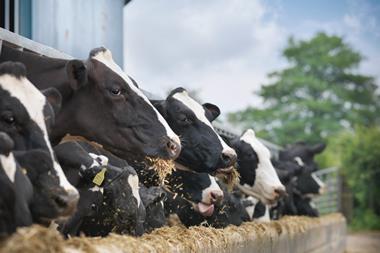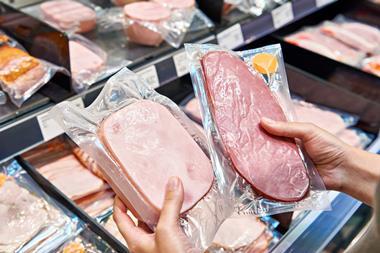
The independent Climate Change Committee’s (CCC) recommendation for consumers to reduce meat and dairy consumption by a fifth by 2030, to reduce carbon emissions, would risk doing the average person more harm than good, a report by leading scientists has found.
A study by researchers at the University of Edinburgh, commissioned by Food Standards Scotland, found that “without careful consideration of replacement” the recommendations risked exacerbating pre-existing micronutrient insufficiencies, especially for intakes of selenium and zinc from meat and iodine and calcium from dairy.
Insufficiencies in calcium, iron, iodine, selenium, and zinc would worsen in men and women aged 16 to 24, the report found.
The Grocer reported in October that scientific modelling of the controversial plans had shown they could risk millions of people being put at risk of ill health due to mineral deficiencies.
In its final report, FSS said the modelling had shown that with careful consideration and adequate replacement, the impact of meat and dairy reductions could be mitigated, but added it was not known how individuals would replace meat and dairy and “caution was advised”.
“The results of this work do not indicate that we can recommend a reduction in dairy intakes in the adult population living in Scotland, given the lack of evidence of health benefit,” it concluded.
The CCC is an independent, statutory body established under the Climate Change Act 2008.
In 2023 the Scottish government asked FSS to look into the proposals, which encourage a 20% reduction in consumption of all meat by 2030, rising to 35% by 2050, and a 20% shift away from dairy products by 2030.
Existing advice for consumers is that they eat no more than 70g of red and red processed meat per day, but falling trends around meat consumption mean average intakes in Scotland are already below this.
However, the FSS said overall the report found further evidence of poor diet in Scotland and additional justification for work to improve dietary intakes in general.
“Although the assumption is that meat and dairy reductions would be of benefit to both climate change mitigation and human health, the reality is more complex,” said Dr Fiona Comrie, FSS senior public health nutritionist.
“Given the diet of the Scottish population is so poor, particularly in some sub-groups, an ‘across the board’ population reduction in meat and dairy consumption cannot be recommended as micronutrient intakes may be worsened among those with already low intakes.
“If those who are classed as high consumers of red and red processed meat reduced their intake to 70g or less per day, significant progress could be made towards the CCC targets.
“Our research has found this would achieve a 16% reduction in total meat consumption.
“The health impacts of a reduction in white meat and dairy are unclear, and more evidence is required about the nutritional impact, risks and benefits on the population, before FSS could make any recommendations,” she added.
FSS CEO Geoff Ogle said: “Our advice around the consumption of red and red processed meat consumption remains unchanged.
“What surrounds us, shapes us. Without changes to the retail and out-of-home food environment to support consumers with healthier options, it is unlikely consumers will be able to make the changes required to achieve diets closer to the Eatwell Guide.
“To help address climate change, there should first be an enhanced focus on achieving all of the Scottish Dietary Goals and supporting a greater proportion of the population in adopting the Eatwell Guide dietary recommendations.”
A spokesman for the AHDB said: “We do not believe in a one-size-fits-all message to cut meat and dairy consumption as it could lead to nutritional inadequacy among vulnerable groups, including those who already have poor diets.
“We acknowledge that if people who are classed as high consumers of red and red processed meat reduced their intake to 70g or less per day, significant progress could be made towards the Climate Change Committee targets.
“We advocate for a considered approach that promotes greater adherence to the Eatwell Guide recommendations, which can include 70g red meat per day for a balanced and healthy diet.”



















No comments yet